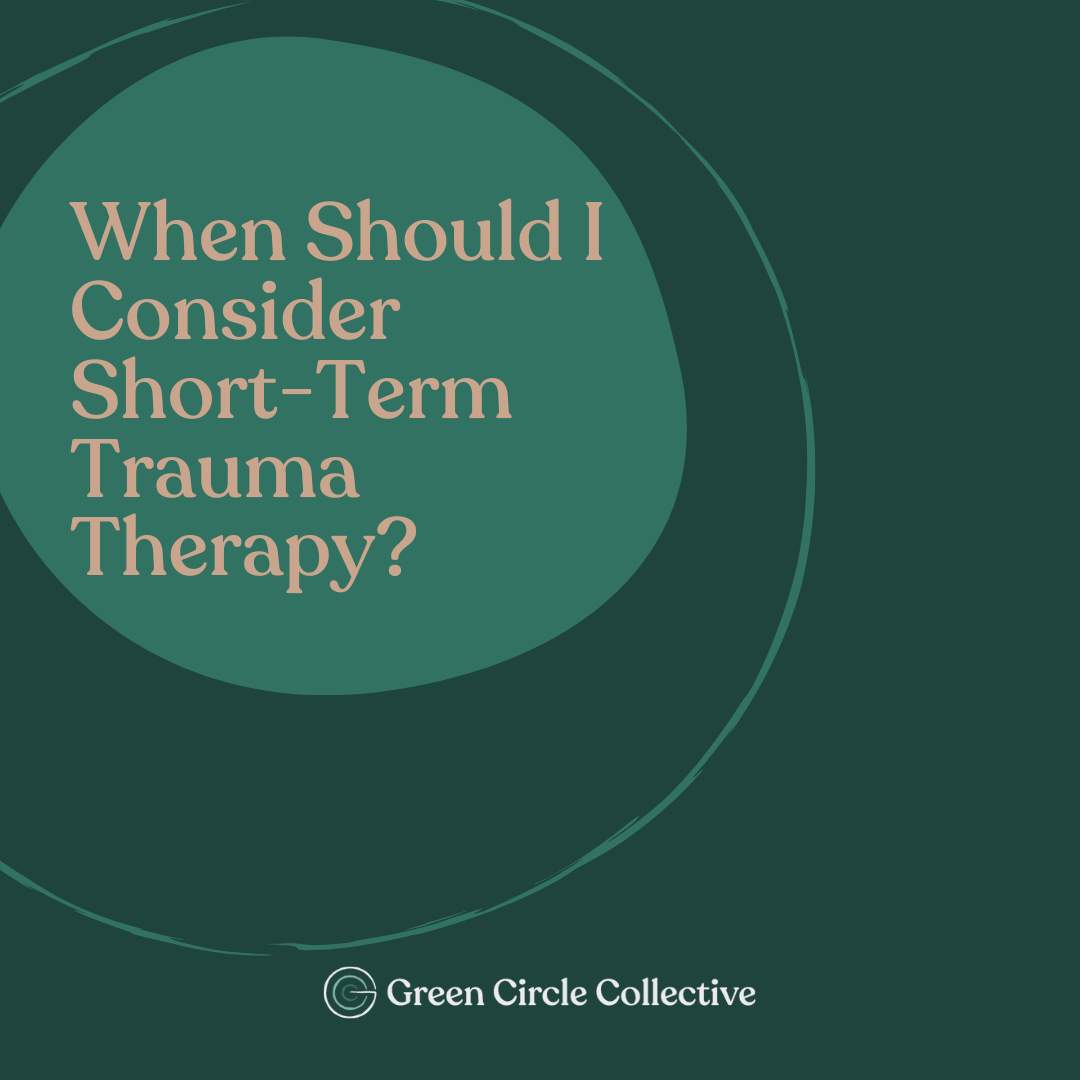When Should I Consider Short-Term Trauma Therapy?
When you want to feel better faster.
I do trauma-focused, goal-oriented, short-term therapy because I love to see clients feel better faster. As a specialist in trauma recovery I like to move swiftly through trauma treatment because trauma has a major impact on the brain and decision making. Trauma keeps you making every decision in your life with a constant undercurrent of fear, anxiety, and stress. When you live with trauma, your brain is getting burned out and you’ll eventually need a reprieve. Once underlying trauma is neutralized, you can begin to make better choices about what's next for your healing process.
For many years I was a conventional psychotherapist. I saw individual clients, ran groups, and used the big toolbox of skills and techniques I was taught in grad school to help people with their mental health. To this day, I go and see a conventional therapist for my own mental and emotional wellness. Conventional talk therapy works - full stop. But just like you sometimes need to go see a specialist for a specific health issue (have you ever been to an OBGYN, a neurologist, cardiologist, or an ENT?) there are times when a trauma specialist is necessary for your mental health.
What if I’m already in therapy?
Sometimes you’re not making progress in non trauma-focused therapy.
I have great relationships with my therapist colleagues and often clients are referred to me that disclose trauma to their regular therapist- sometimes after years of seeing them. It can take time to want to open up about trauma, and trauma can be impacting your therapy progress even while you’re working on other issues. While conventional therapy can help with the symptoms of trauma and help heal trauma over time, short-term EMDR therapy and specific trauma-focused groups help heal the trauma itself - not just the distressing symptoms in a much shorter time frame.
If you don’t feel like you’re making progress in your therapy, or you have a hard time sticking with a therapist because no one seems to “get” you, you may want to consider doing short-term EMDR. Part of my responsibility as the short term (also known as adjunctive) therapist is to communicate and coordinate with any other therapists - individual, couples, or family therapists. If you’re working with someone you like and trust in regular therapy, I make sure to collaborate with them to ensure the time you spend with me is efficient and effective. I love sending clients back to their original therapists with their trauma resolved so they can go deeper and have more meaningful sessions without trauma being the elephant in the therapy room.
You or someone close to you recently experienced a significant change or trauma
One of the main reasons why people come to see a trauma specialist like me is after a recent scarring event. Events such as:
Breakups or divorces
Sexual assaults
Car accidents
Death of a loved one
Violent crime
Natural disasters
Terrorism / mass violence
Affairs and emotional betrayal
Traumatic events really mess with a person’s view of the world and how they view themselves in the world, even if you don’t view it as traumatic at the time. Your beliefs about safety, security, and control over what happens to you can be shattered. People also don’t often realize how deeply distressing things can impact them even if the trauma happened to someone else. When people we are close to go through a tough time, our natural empathy may turn into our own fears and distorted beliefs that might need therapy to be addressed.
Effective Trauma-Focused Therapy
Seeing a trauma specialist for a trauma-focused therapy like Eye Movement Desensitization and Reprocessing, also known as EMDR, can help with handling a variety of traumatic events.
EMDR is so commonly used for these kinds of traumatic events, there is even a specific protocol therapists can utilize. If an event happened within the last 90 days, a “recent event protocol” can be used to help the person impacted process the trauma without the trauma causing more symptoms moving forward. This has to do with how the brain processes memories - the sooner you get treated for a traumatic event, the better the chances that your trauma will allow you to have post-traumatic growth instead of turning into post-traumatic stress.
Your mental and physical health changes
Other conditions in your mental and physical health get worse for no perceivable reason.
For some people that have experienced trauma from an early age or haven’t been able to have their trauma treated, other health concerns like depression, anxiety, pain, or chronic fatigue might actually be a symptom of unresolved trauma. When other issues are symptoms of trauma, there might be no rhyme or reason why those issues get better or worse. People with this level of complexity in their trauma have been able to learn to deal with trauma by managing the other health concerns, but when those issues start to worsen despite the appropriate management through healthy coping skills, medication management with a trusted prescriber, specialist treatment or conventional therapy, it is probably time to explore treatment focused on healing trauma.
When I work with this kind of client, they are usually referred by a provider the client works with that doesn’t specialize in trauma. That provider has usually done everything in their scope of practice to help their client but may be learning of a trauma history as trust is built in the relationship or may be understanding the severity of a traumatic experience and the necessity for treating the trauma. Other times, clients find me and I am able to help educate their other providers on the impact of trauma on their client’s overall mental and physical health and wellness.
You have a high chance of vicarious trauma due to your job or life circumstances.
The need to do trauma-focused therapy may come up suddenly, or might have been brewing in your life for years. Regardless of whether the trauma is new or not, being able to identify the need for help with trauma is an important step in the healing process. As a therapist that specializes in helping folks recover from recent events and complex trauma, I know from experience how much better people feel once they’ve dealt with the traumatic stress. If you’re looking for fast and effective trauma relief, please schedule a good-fit call today!


